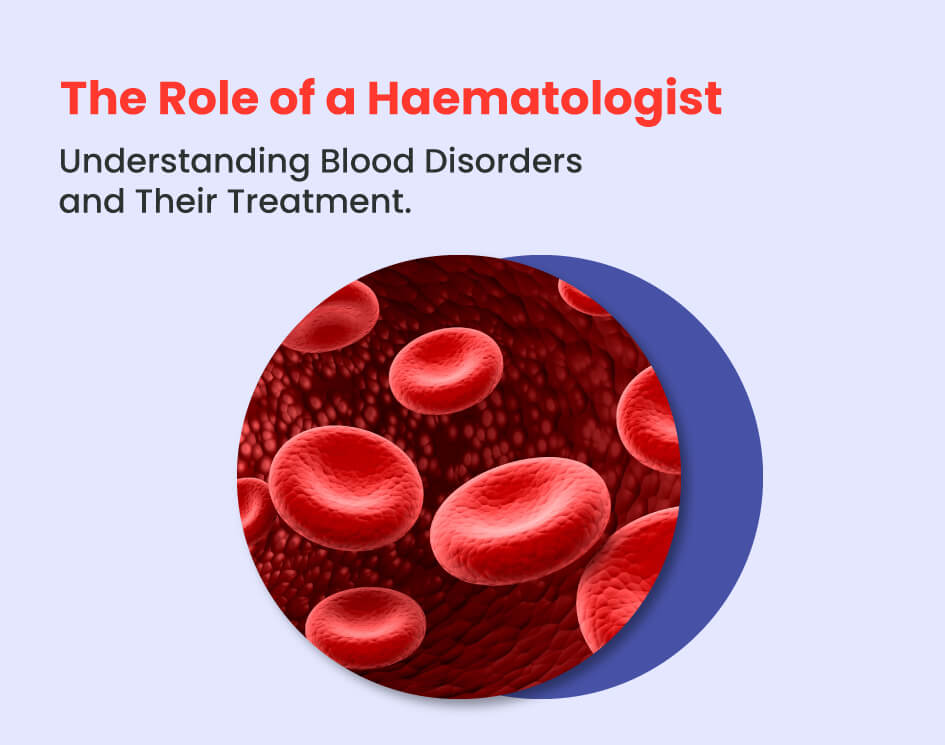
Role of a Haematologist: Blood Disorders & Treatments
A haematologist is a medical professional specializing in the study, diagnosis, and treatment of blood disorders. With expertise in both clinical and laboratory aspects, haematologists play a vital role in identifying and managing various conditions affecting the blood and its components.
This article aims to shed light on the role of haematologists in understanding blood disorders and their treatment, highlighting their essential contributions to patient care and overall healthcare.
Understanding Blood Disorders
Blood disorders encompass a wide range of conditions that affect the composition, structure, and function of blood components. Some common blood disorders include anaemia, haemophilia, leukaemia, lymphoma , and thrombosis. Haematologists possess in-depth knowledge of these conditions, their causes, a:bsymptoms, and diagnostic techniques.
Haematologists are skilled in interpreting laboratory tests such as complete blood counts (CBCs), coagulation profiles, and bone marrow biopsies. These investigations aid in identifying abnormalities, determining the type and severity of blood disorders, and guiding appropriate treatment strategies.
Diagnosis and Treatment
Haematologists play a crucial role in diagnosing and managing blood disorders. They work closely with patients, taking detailed medical histories, performing physical examinations, and evaluating diagnostic results to formulate accurate diagnoses.
Once a diagnosis is established, haematologists design personalized treatment plans based on the specific blood disorder and its stage. Treatment options may include medication, transfusions, chemotherapy, radiation therapy, or stem cell transplantation. Haematologists collaborate with other specialists to provide comprehensive care, ensuring optimal outcomes for patients.
In cases of haemophilia or other bleeding disorders, haematologists coordinate with haemostasis experts to manage bleeding episodes and prevent complications. They guide patients in the administration of clotting factor concentrates or other therapies to control bleeding effectively.
Haematologists also play a vital role in treating blood cancers such as leukaemia and lymphoma. They oversee chemotherapy protocols, monitor treatment responses, and adjust therapeutic regimens as needed.
Additionally, they may coordinate bone marrow or stem cell transplantation procedures, which can offer potential curative options for certain blood cancers.
Research and Advances
Haematologists are actively involved in ongoing research and clinical trials to advance the understanding and treatment of blood disorders. Through their participation, they contribute to the development of innovative therapies, targeted treatments, and improved patient care.
Their research efforts focus on areas such as new drug discoveries, molecular diagnostics, genetic predisposition, and innovative treatment modalities. By staying at the forefront of medical advancements, haematologists are able to provide cutting-edge treatments and improved outcomes for their patients.
Conclusion
Haematologists play a vital role in the understanding and management of blood disorders. Through their expertise, they provide accurate diagnoses, personalized treatment plans, and comprehensive care for patients with conditions such as anaemia, haemophilia, leukaemia, lymphoma, and thrombosis.
Their skills in interpreting laboratory tests, coordinating with other specialists, and staying informed about the latest research and advancements enable them to deliver high-quality healthcare.
As the field of haematology continues to evolve, haematologists remain at the forefront of new discoveries and therapeutic options. With their dedication and expertise, haematologists contribute significantly to improving the lives of individuals affected by blood disorders, offering hope, support, and effective treatment strategies.






